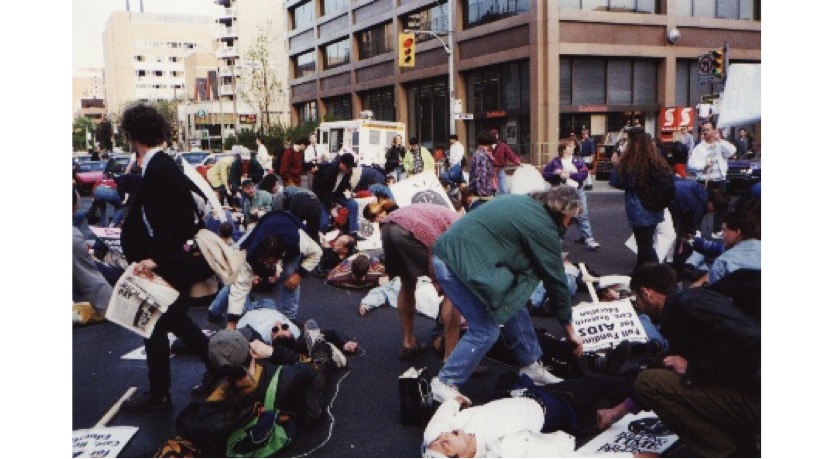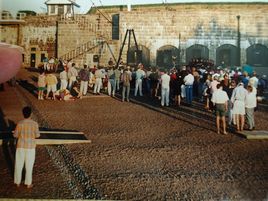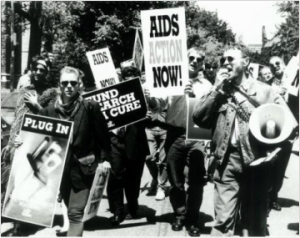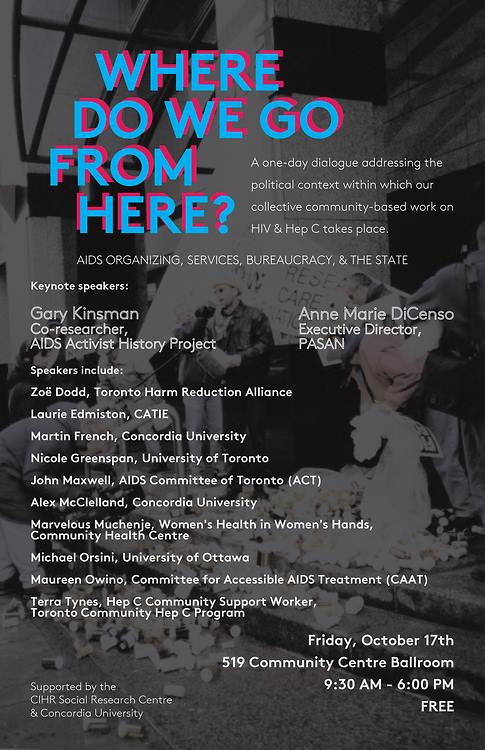
On the video wall, there was a little five minute remake of Death in Venice, but turned into “The ADS Epidemic”, not the AIDS epidemic. So, acquired dread of sex was the new epidemic, and it was of course talking about that culture of fear and hatred that early AIDS discourses in the mainstream media and state policies have produced, demonizing queers, creating a general sense of sex panic, and trying to combat that through humour and music.
– John Greyson (AAHP interview transcript, p. 1)
As someone who dabbles in stand up comedy, I’ve been thinking about the work of making comedy and the work of making change.



 Less than thirty years ago, ordinary people living with HIV/AIDS, alongside allies, took action to resist stigma, change harmful government policies, and save one another’s lives. These people’s stories deserve to be remembered and learned from. We have posted complete transcripts along with short video clips of the first interviews conducted as part of the AIDS Activist History Project. We have also collected and made available extensive archival material, including photos, meeting minutes, and news articles from this time. It is all available through
Less than thirty years ago, ordinary people living with HIV/AIDS, alongside allies, took action to resist stigma, change harmful government policies, and save one another’s lives. These people’s stories deserve to be remembered and learned from. We have posted complete transcripts along with short video clips of the first interviews conducted as part of the AIDS Activist History Project. We have also collected and made available extensive archival material, including photos, meeting minutes, and news articles from this time. It is all available through
